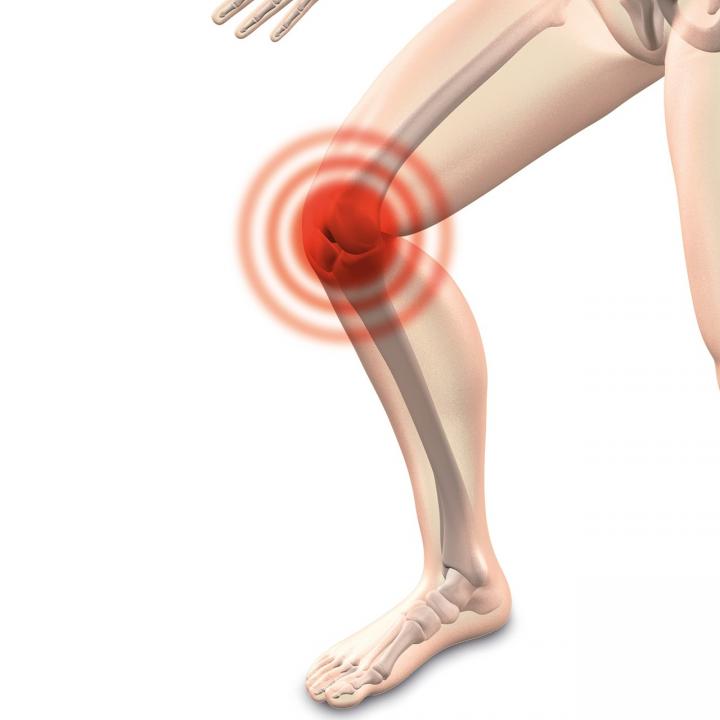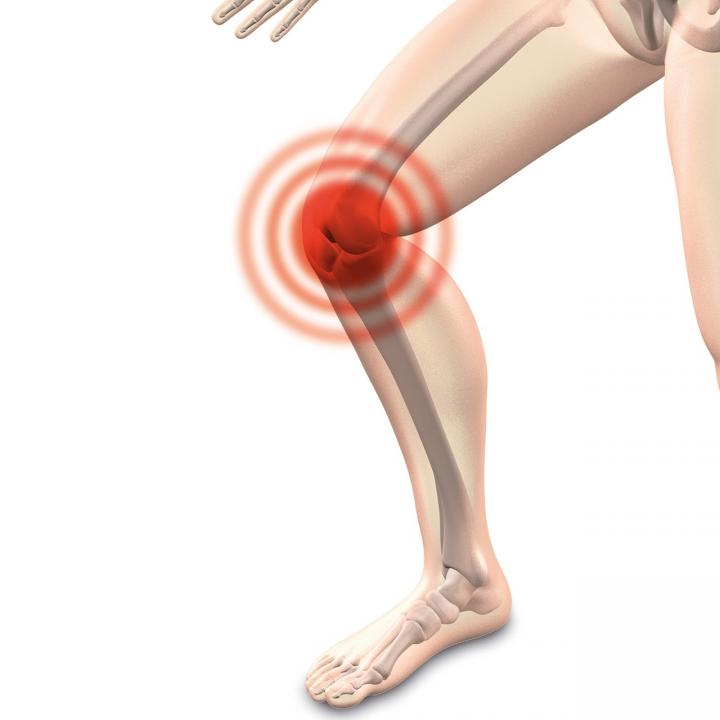
Credit: Gustavo A. Orozco
Knee joint injuries are typically related to sports, such as football, rugby or ice hockey, but people often do not know that such injuries may lead to joint inflammation and post-traumatic osteoarthritis. In advanced post-traumatic osteoarthritis, joint cartilage breaks down completely, causing severe joint pain, lack of mobility and even social isolation. However, the mechanisms leading to osteoarthritis are not known. Currently, it is not possible for a physician examining a patient to predict future joint condition and possible development of osteoarthritis. In the future, however, this may be possible, as a new study from the University of Eastern Finland and Massachusetts Institute of Technology now shows that articular cartilage degenerates specifically around injury areas when the fluid flow velocity becomes excessive. The findings were reported in Scientific Reports.
The study presents a new mechanobiological model for cartilage degeneration by implementing tissue deformation and fluid flow as mechanisms for cartilage breakdown when a normal dynamic loading, such as walking, is applied to the joint. The results were compared to experimentally observed degradation of articular cartilage. Ultimately, the new model could be used to predict osteoarthritis in personal medicine, to suggest optimal rehabilitation protocols, and to improve the quality of life.
The researchers found that different mechanisms, such as fluid flow and tissue deformation, can cause cartilage degradation after a knee injury. The results obtained using the novel algorithm agreed well with the experimentally observed proteoglycan content and cell death in cartilage samples. According to the researchers, a numerical analysis shows that both fluid flow and tissue deformation are plausible mechanisms leading to osteoarthritis, but increased fluid flow from cartilage seems to be better in line with the experiments.
"Our findings indicate that after an injury in the knee and subsequent tissue loading, osteoarthritis is caused by easy leakage of proteoglycans through the injury surface by high fluid outflow," Early Stage Researcher Gustavo A. Orozco from the University of Eastern Finland explains.
The findings are significant, and could open up new avenues for the model to be employed in the prediction of subject-specific progression of post-traumatic osteoarthritis, and in the evaluation of the effect of clinical interventions in the future. Specifically, the model could identify high and low-risk lesions in the cartilage for osteoarthritis development and suggest an optimal and individual rehabilitation protocol.
###
The study has received funding from the European Union's Horizon 2020 research and innovation programme under the Marie Sklodowska-Curie grant No 713645.
For further information, please contact:
Early Stage Researcher Gustavo A. Orozco, tel: +358 50 3485018, [email protected]
Original article:
Gustavo A. Orozco, Petri Tanska, Cristina Florea, Alan J. Grodzinsky & Rami K. Korhonen
A novel mechanobiological model can predict how physiologically relevant dynamic loading causes proteoglycan loss in mechanically injured articular cartilage. Scientific Reports (2018). DOI: 10.1038/s41598-018-33759-3.
The article is available for download at: https://www.nature.com/articles/s41598-018-33759-3
Media Contact
Gustavo A. Orozco
[email protected]
358-503-485-018
@UniEastFinland
http://www.uef.fi
Related Journal Article
http://dx.doi.org/10.1038/s41598-018-33759-3





